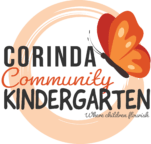Why Kindergarten is Important for Your Child
The Benefits of Kindergarten for Children
Kindergarten is a crucial stepping stone in a child’s educational journey. It provides a foundation for lifelong learning and development. The benefits of attending a quality kindergarten program are numerous and impactful. Here’s an in-depth look at why kindergarten is essential for your child:
Social and Emotional Development
- Building Social Skills: Kindergarten helps children learn how to interact with their peers, share, take turns, and develop friendships. These social skills are fundamental for future success in school and life.
- Emotional Resilience: Programs foster emotional intelligence by teaching children how to express their feelings, understand others’ emotions, and develop empathy. This emotional resilience is crucial for coping with challenges and building self-confidence.
Cognitive and Language Skills
- Enhanced Language Development: Through storytelling, singing, and conversations, children develop robust language skills. This early exposure to language enhances vocabulary, comprehension, and communication abilities.
- Cognitive Growth: Kindergarten programs are designed to stimulate cognitive development through activities that encourage problem-solving, critical thinking, and creativity. These activities prepare children for the academic challenges of primary school.
Physical Development
- Fine and Gross Motor Skills: Activities such as cutting, drawing, and playing with blocks help develop fine motor skills, while outdoor play and physical activities improve gross motor skills. These skills are essential for writing and other school-related tasks.
- Healthy Habits: Programs often include lessons on healthy eating, hygiene, and physical activity, promoting a healthy lifestyle from a young age.
Learning Through Play
- Play-Based Learning: Play is a powerful tool for learning. Through play, children explore, experiment, and make sense of the world around them. This approach aligns with the Queensland Kindergarten Learning Guideline (QKLG) as well as Early Years Learning Framework (EYLF).
- Real-Life Learning Experiences: Activities such as art, construction, science experiments, cooking, and gardening provide hands-on learning experiences. These activities help children understand concepts in a practical, engaging manner.
Preparation for School
- School Readiness: Kindergarten programs ensure children are ready for the transition to primary school. This includes developing pre-literacy and numeracy skills, understanding routines, and fostering a positive attitude towards learning.
- Confidence and Independence: Through structured activities and free play, children learn to become more independent and confident. These qualities are essential for a smooth transition to school.
Commitment to Quality
- Government-Approved Programs: All Queensland government approved kindergarten programs adhere to strict guidelines set by the Queensland Government, ensuring high standards of early childhood education.
- Experienced Educators: Kindergartens employ highly qualified and experienced educators who are passionate about early childhood education. They provide a nurturing and stimulating environment for children to thrive.
- Community Involvement: Kindergartens emphasise the importance of community and family involvement. This holistic approach supports the child’s development and fosters a strong sense of belonging.
The Long-Term Impact of Kindergarten
Research consistently shows that children who attend quality kindergarten programs have better outcomes in terms of academic achievement, social skills, and emotional well-being. The early years are a critical period for brain development, and the experiences children have during this time lay the foundation for future success.
Enrolling your child in a kindergarten program is one of the best investments you can make in their future. The benefits of kindergarten extend far beyond the early years, shaping children into well-rounded, confident, and capable individuals ready to take on the challenges of primary school and beyond.
